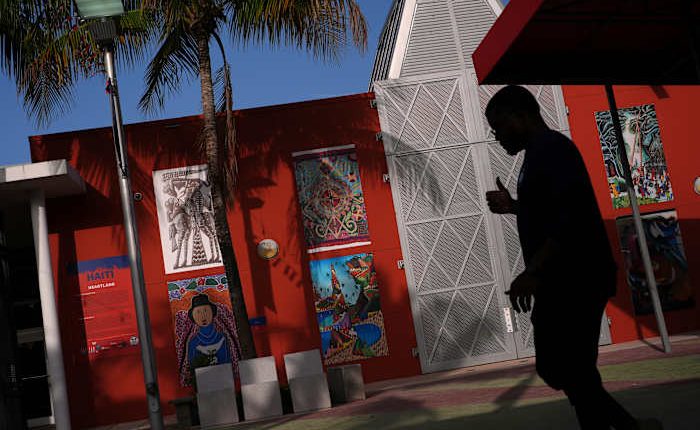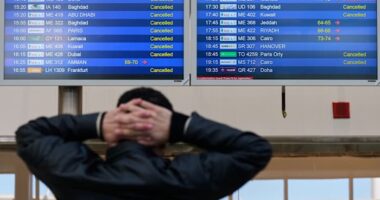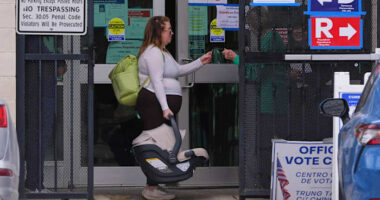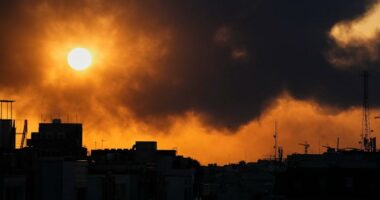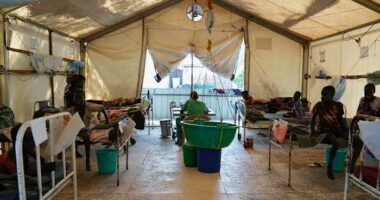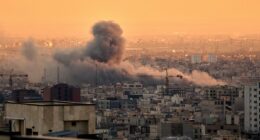Share this @internewscast.com
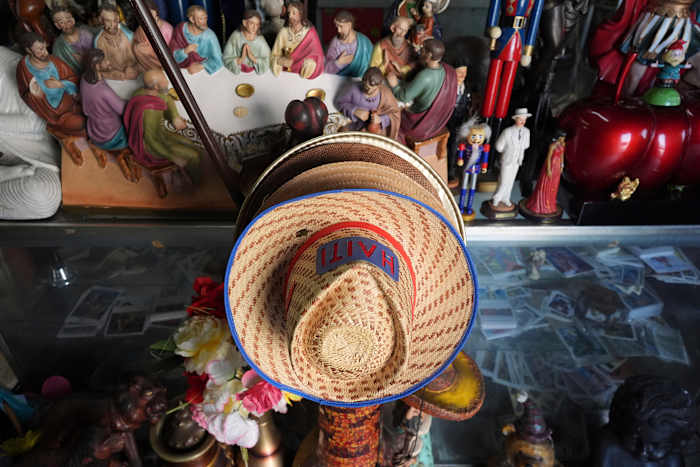
WASHINGTON – President Donald Trump’s latest travel ban targeting citizens from 12 predominantly African and Middle Eastern nations will commence on Monday amid growing tensions due to his intensive immigration enforcement efforts.
The updated mandate, signed by Trump on Wednesday, affects citizens from Afghanistan, Myanmar, Chad, the Republic of Congo, Equatorial Guinea, Eritrea, Haiti, Iran, Libya, Somalia, Sudan, and Yemen. It further enforces stricter conditions on citizens from Burundi, Cuba, Laos, Sierra Leone, Togo, Turkmenistan, and Venezuela who are overseas without a valid visa.
According to guidance released on Friday to U.S. diplomatic missions, the ban will not revoke existing visas for people from the listed countries. However, unless an applicant qualifies for a narrowly defined exemption, their application will be denied starting Monday. Those with previously granted visas should still be permitted to enter the U.S. once the ban is in force.
Haitian-American Elvanise Louis-Juste, who was at the airport Sunday in Newark, New Jersey, awaiting a flight to her home state of Florida, said many Haitians wanting to come to the U.S. are simply seeking to escape violence and unrest in their country.
“I have family in Haiti, so it’s pretty upsetting to see and hear,” Louis-Juste, 23, said of the travel ban. “I don’t think it’s a good thing. I think it’s very upsetting.”
Many immigration experts say the new ban is designed to beat any court challenge by focusing on the visa application process and appears more carefully crafted than a hastily written executive order during Trump’s first term that denied entry to citizens of mainly Muslim countries.
In a video posted Wednesday on social media, Trump said nationals of countries included in the ban pose “terrorism-related” and “public-safety” risks, as well as risks of overstaying their visas. He also said some of these countries had “deficient” screening and vetting or have historically refused to take back their citizens.
His findings rely extensively on an annual Homeland Security report about tourists, businesspeople and students who overstay U.S. visas and arrive by air or sea, singling out countries with high percentages of nationals who remain after their visas expired.
Trump also tied the new ban to a terrorist attack in Boulder, Colorado, saying it underscored the dangers posed by some visitors who overstay visas. The man charged in the attack is from Egypt, a country that is not on Trump’s restricted list. U.S. officials say he overstayed a tourist visa.
The ban was quickly denounced by groups that provide aid and resettlement help to refugees.
“This policy is not about national security — it is about sowing division and vilifying communities that are seeking safety and opportunity in the United States,” said Abby Maxman, president of Oxfam America, a nonprofit international relief organization.
Venezuela President Nicolás Maduro’s government condemned the travel ban, characterizing it in a statement as a “stigmatization and criminalization campaign” against Venezuelans.
Copyright 2025 The Associated Press. All rights reserved. This material may not be published, broadcast, rewritten or redistributed without permission.
